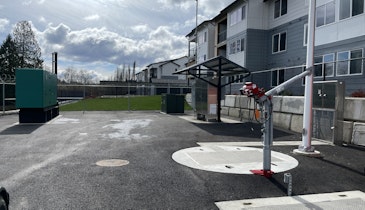Go to a Northern Wisconsin lake in summer and you’ll see anglers in boats, casting lures or soaking bobbers near lily pad beds or brush piles near shore. That’s the way they fish; a well-known guide refers to such folks as “bank beaters.”
What he means is they stick to the same shoreline-based tactics all the time. Now, shoreline fishing works and can yield some nice catches. But if on a given day there are no fish in those areas, or they are there but not biting, the “bank beaters” are out of luck.
The remedy is to head out to deeper water and work the edges of weedbeds, the sandbars, the rock humps, the cribs and timber piles, that may be harder to find, but are more likely to produce – and may yield bigger fish.
So it can be in business. It’s great to have a single specialty that you know and love and can deliver profitably and to customers’ great satisfaction. But if that’s all you do, what happens if conditions conspire to dry that business up? That happened to a goodly number of onsite installers who depended heavily on new housing and felt the rug pulled out when the recession hit in 2008.
Making adjustments
A common theme among installers we profile on our pages recently is adaptability. When housing went into a slump, they made adjustments, in some cases changing their business mix drastically.
They did it by necessity, though in a few cases without a great deal of premeditation. The market changed, and they just followed demand where it led. They managed to keep going, and now that they have entered different markets and adopted different tools and techniques, they may never go back to the way they used to operate, even if the housing sector comes back.
Now, what about making a conscious decision to change your approach to the market? If “the fish aren’t biting” in the housing sector, what might be out there in the “deeper water?”
Where to wet a line?
What lines of business are installers looking into? Well, for one, maintenance, and not just O&M on advanced systems. Some have taken on system pumping, or if they dabbled in that service before, are getting more active with it.
The clear benefit of going into any kind of maintenance is that a customer served with an install can become a customer for life – the service creates a regular income stream that is somewhat impervious to the housing market’s cycles. Of course, it means developing the skills to build customer relationships, not to mention investing in and getting to know new equipment.
Others have transitioned into more general excavation, maybe not as interesting or challenging in all cases, but a great way to keep the machinery and team members busy.
These are perhaps the obvious business expansions, but there are several other avenues available. For example, how about designing? It takes training to become a soil evaluator and system designer, but it doesn’t require a four-year degree. Learn these skills and you become more valuable and versatile.
How about system repair? A number of installers have gravitated in this direction since the market for new systems fell off. Old systems still fail, and when they do, someone has to step in to fix or replace them.
How about graduating to bigger-scale projects like commercial systems or community clusters? That could mean making contacts at engineering firms or with some of the more sophisticated designers – but these can be big jobs, well worth chasing if you can get access to the right equipment and, again, the knowledge.
Making a choice
Other possibilities? Performing time-of-sale inspections. Hanging out your shingle as an onsite consultant and troubleshooter. Getting involved with projects in related sectors, such as stormwater management.
The point is that, if you’re fishing familiar waters and not much is biting, perhaps it’s time to explore the deep. You might find the fishing so much more fun and rewarding that, while you’ll still enjoy probing the shorelines at times, you won’t depend on them ever again.





